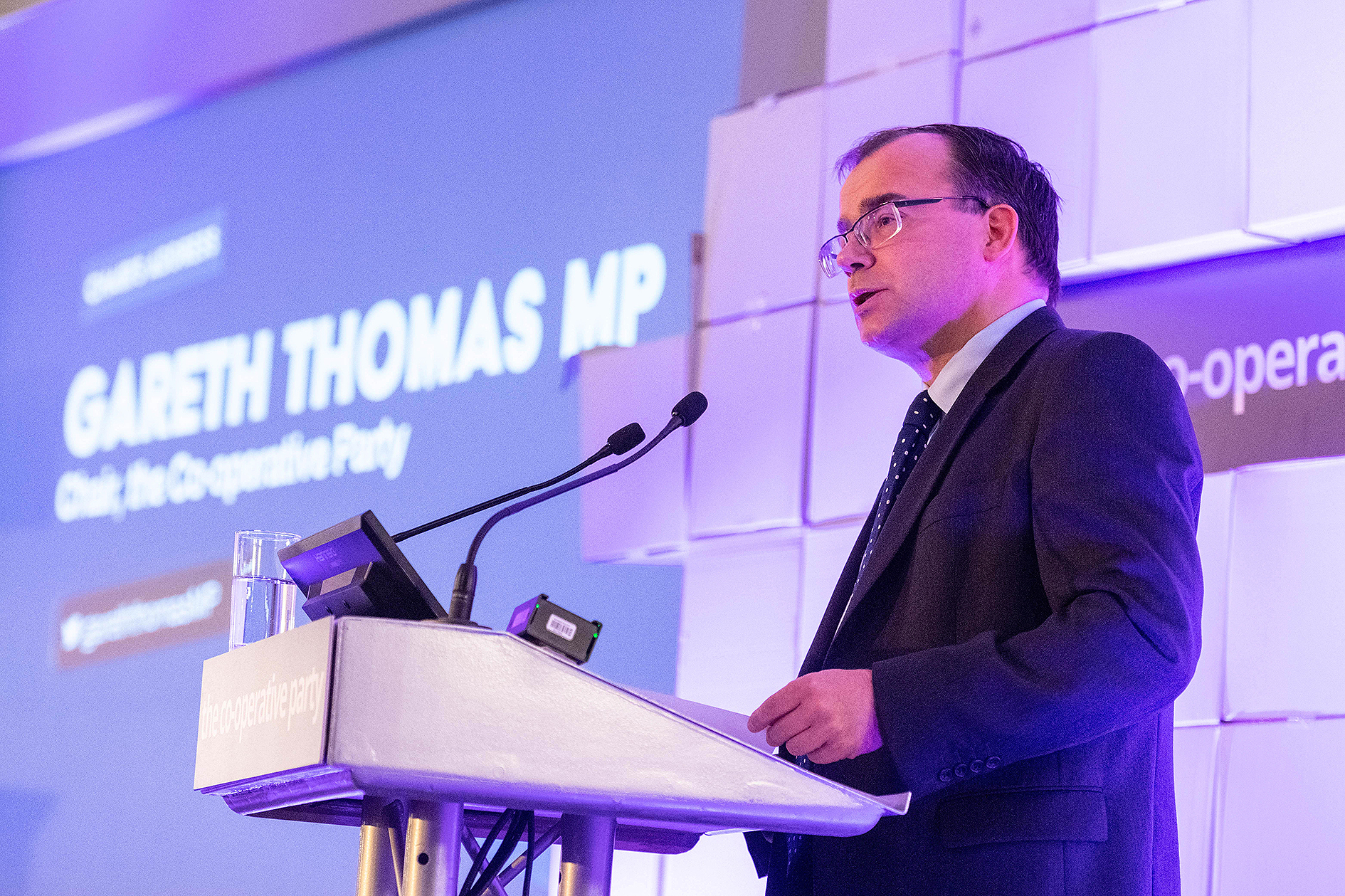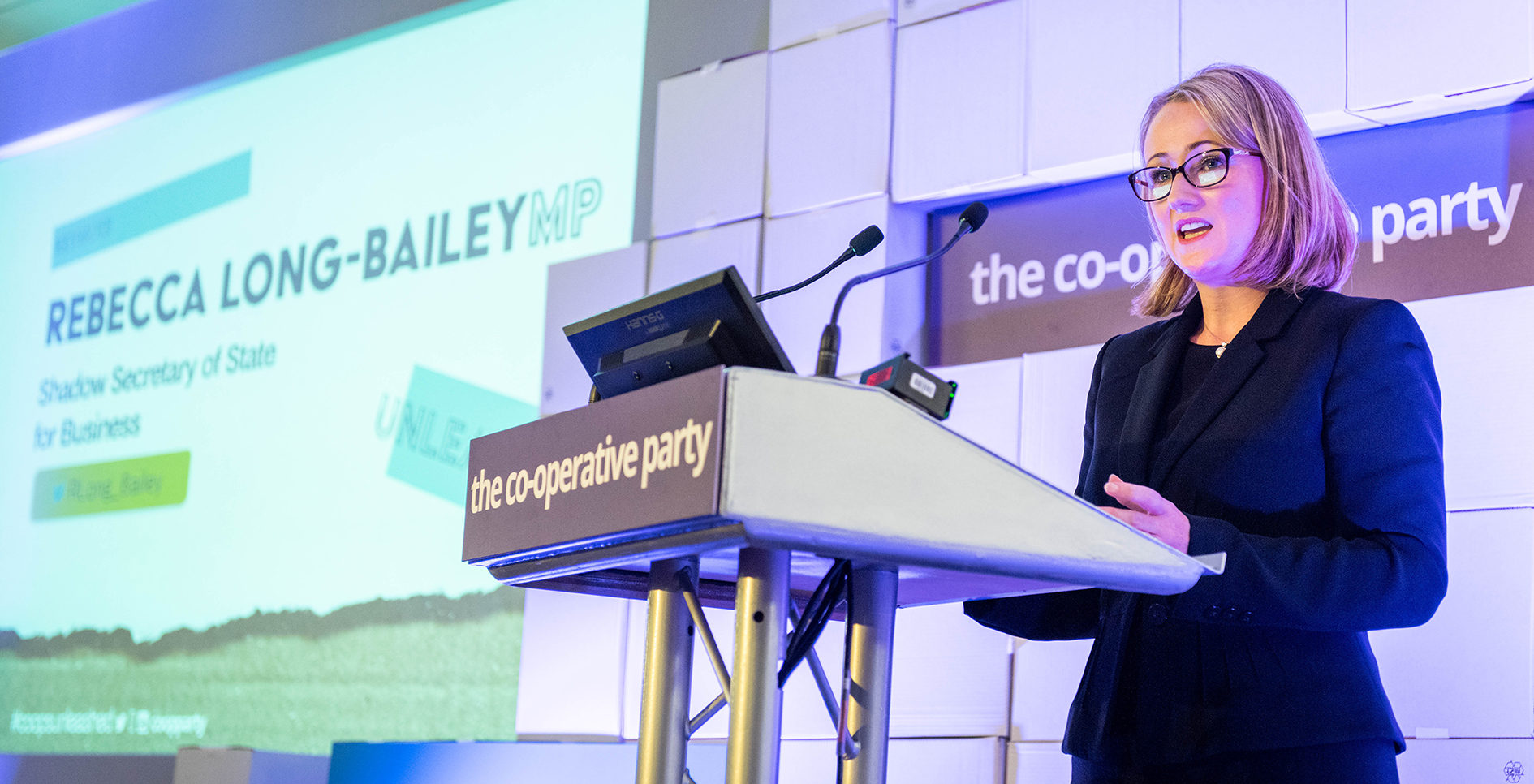The Co-op Party held its annual conference in Bristol over the weekend (13-14 October) where delegates were told their ideas were “shaping the political agenda”.
In his keynote speech, Vaughan Gething, cabinet secretary for health, wellbeing and sport on the Welsh government, hailed “the first conference of the Co-op Party’s second century”.
He said the Conservative government had shown “an absolute dearth of ideas” and it was time for co-operative policies, such as those outlined in the New Economics Foundation report commissioned by the Co-op Party, to be put in place.
“Our ideas are shaping the political agenda,” he said. “We need an ownership relationship to build an economy where power and wealth are shared.”

But Mr Gething warned that “families in poverty can’t wait for a Labour government”, and stressed the role of the devolved Scottish and Welsh administrations, the network of co-operative councils, and organisations like the Wales Co-op Centre in bringing about change.
The Welsh government was committed to more co-operative housing in Wales, a national care service, and an end to school holiday hunger for children in poor families, he said.
Opening the conference, Party chair Gareth Thomas paid tribute to the achievements of the co-op sector in Bristol, with 11,000 credit union members, Bristol Energy Co-op supplying clean energy to 2,400 homes every day, and innovations on community land trusts and co-op housing.
Related: Co-op Party backs public vote on Brexit deal
“What do we need to do to help these successful co-operatives move from being trailblazers to just the older part of a new mainstream?” he asked. “How do we grow the ambition for the co-op movement?”
He said there were ways to quickly grow the co-op movement – as part of the Party’s goal of doubling it in size – such as turning the privatised utilities into mutuals. And a large number of small and medium enterprises are approaching a transfer process as their owners prepare to retire; these should be encouraged to consider employee ownership.

Other options include tax incentives for worker-owned businesses, land reform to make community housing easier to develop, and better access to capital markets for co-ops. But there was still a battle for ideas, he said, with resistance from big-state adherents of the old left in the Labour party and, on the right, from the business world.
Mr Thomas said the place to fight for those ideas was through the Co-op Party’s relationship with the Labour Party, whose leadership was increasingly supportive of co-operative ideas, and said he wanted the Party enter government with its sister organisation.
Since the Brexit referendum, there has been media speculation about a new centrist party but Mr Thomas said this “would be an act of almost criminal self indulgence that would guarantee another decade or worse of Tory rule”.
Other speakers also stressed the importance of developing policy for a Labour government.
Christina Rees, shadow secretary for Wales, said: “Preparations for government are vital so we are ready to become one of the greatest reforming governments this country has ever seen.”
Related: Bristol signs up to co-op council movement
Reiterating this view, shadow business secretary Rebecca Long-Bailey said in her keynote speech that co-ops and worker ownership were a vital alternative to a corporate model that had changed from one where share ownership lasted for an average of six years to the current situation, where they could be held for just a few seconds.
“Think what we could achieve with a government that really put co-operatives at the heart of business development,” she said.

And Jim McMahon, shadow secretary for local government and devolution, said: “Our next government won’t be Labour, it will be Labour and Co-operative.”
In another sign of the Party’s closer links to other movements, trade union Usdaw – the Union of Shop, Distributive and Allied Workers – has just affiliated to the Party.
Giving a keynote speech to the conference, general secretary Paddy Lillis said: “Today we have more than 45,000 members in co-op societies.
“In Usdaw, our values and principles are the basis on which our campaigns are done… but we need to be persuasive in the pursuit of our goals. I see the same approach in the Co-op Party.”
He welcomed the Co-op Party’s support for the union’s campaign to prevent the illegal sale of knives and alcohol to protect retail workers from abuse and assault.
And with retail workers suffering the effects of closures and cutbacks in the sector, he stressed the importance of the Party’s ideas for “an economy where wealth and power are shared … many of the ideas you have discussed fit well with our campaigns”.
Mr Lillis said one in ten low-paid workers have to use food banks, and called for minimum contracts of 16 hours a week, and a minimum wage of £10 an hour.
“I believe there is a special place for the Co-op Party and the trade unions within the wider Labour Party,” he said, adding that they could work together for improved corporate governance; a voice for workers when regulators consider mergers; more investment in skills, and efforts to ensure that automation is “an industrial revolution for the benefit of the many”.

